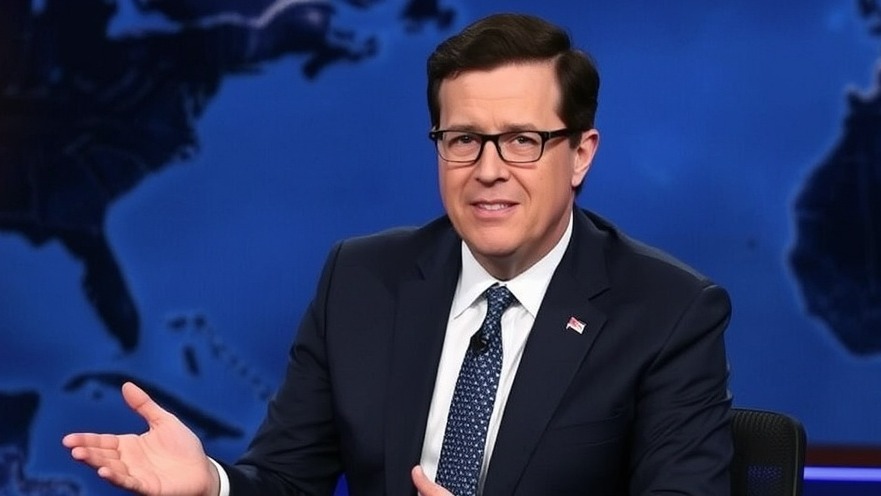
The Impact of Stephen Colbert's Cancellation on Late-Night Culture
The cancellation of The Late Show with Stephen Colbert marks a seismic shift in the late-night television landscape, a space that traditionally served as a cultural barometer and a comedic commentary on American life. As digital nomads embrace global exploration, it's vital to recognize how entertainment reflects and shapes societal values, especially in settings where humor is tied to national identity and politics.
Reflecting on Late-Night Comedy's Historical Context
Late-night television has long held a mirror to American society—a platform for political discourse wrapped in satire. From Johnny Carson to Jon Stewart, these shows have provided audiences with not just entertainment, but a distinct perspective on unfolding national narratives. Colbert's departure signals the end of an era characterized by ideological comedy that boldly confronted the absurdities of political life, particularly during the tumultuous Trump presidency.
Why Late-Night Shows Matter for Digital Nomads
For digital nomads, late-night comedy isn't merely a form of entertainment; it’s a lens through which they can understand the cultural dynamics of the places they traverse. Shows like Colbert's dissect news events and societal issues, bridging the gap between various cultural narratives and the global audience. The loss of such a program reflects a dwindling platform for these essential conversations in media.
The Significance of Political Commentary in Entertainment
Colbert's incisive commentary on the political landscape resonated with many who sought a humorous but critical reflection of the chaos surrounding them. The fact that his show faced cancellation shortly after confronting CBS’s dealings with Donald Trump raises questions about media integrity and corporate influence. With the stakes high, the responsibility to analyze and critique the political bubble takes on more urgency.
Future Predictions for Late-Night Television
Looking ahead, the future of late-night television appears uncertain. Will this cancellation lead to a shift in how these shows approach authenticity and audience engagement? As ratings continue to plummet in traditional formats, a transformation must embrace new methods—perhaps integrating more diverse voices or interactive platforms to attract younger viewers, especially digital nomads accustomed to consuming content differently.
The Cultural Relevance of Humor Amidst Global Events
Throughout history, comedy has served as a refuge during difficult times. In a world rife with challenges, laughter can offer respite while also provoking thought. The cultural significance of humor as a coping mechanism remains relevant, making the loss of Colbert’s platform feel particularly poignant. As nomads explore various cultures, they often find humor transcending linguistic and geographic boundaries, underlining its universal importance.
Engagement in Political Discourse: A Call to Action
As Stephen Colbert exits the stage of late-night comedy, there is a vital lesson for digital nomads and audiences alike: engaging with political discourse, no matter how uncomfortable, is essential. Seek out alternative platforms, from podcasts to online web series, that encourage informed discussion about cultural complexities. Explore how your travels influence your understanding of global politics, and don't shy away from seeking the funny and poignant moments hidden in serious discussions.
Final Thoughts: Navigating the Cultural Landscape
The conclusion of The Late Show with Stephen Colbert is emblematic of broader shifts in the entertainment industry, and serves as a somber reminder of the role these shows play in shaping cultural narratives. While change can be daunting, let it also inspire curiosity and growth. Understanding the nuances of humor across the globe will enrich your travels and your engagements with a diverse audience.
 Add Row
Add Row  Add
Add 




Write A Comment